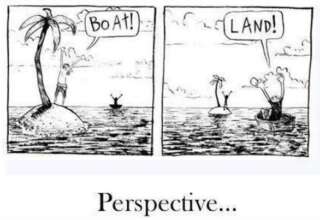
International benchmarks show that the academic standards of 15-year-old students in the UK are average, at best, when compared with those of their peers overseas. This is despite the fact that the UK invests significantly more per head than others in education; that the peer group includes countries with very much higher poverty rates than the UK; and that this country has a sizeable cohort of world-class schools leading the pack.
This was the depressing conclusion of the Programme for International Student Assessment (Pisa) undertaken in 2012 by the Organisation for Economic Cooperation and Development, the rich countries’ club. When compared with previous Pisa studies in 2006 and 2009, there had been no improvement in the UK’s performance in any of the subjects tested. And the analysis for 2015, which is due to be published on Tuesday, is not expected to show any great change for the better.
This depressing performance is explained by our failure to deal with the long tail of underachievement from the poorest communities – the great national challenge which the Fair Education Alliance was set up to address. The last Pisa survey showed that when it came to mathematics, the gap between the performance of the more advantaged students compared with their less well-off peers in this country was equivalent to roughly a full year of schooling, and rather wider than the OECD average.
This has serious consequences. It represents a shocking waste of talent that affects our productivity and competitiveness as an economy. As the OECD explains, nurturing excellence in mathematics, reading and science “is crucial for a country’s development as these students will be in the vanguard of a competitive, knowledge-based global economy”.
Educational inequalities also strain social cohesion, and are at least part of the explanation for the political turmoil now being experienced in parts of Europe and in the US.
‘The rest of the world could go racing by’
If we do not act with speed to close these gaps, our country risks becoming an underachieving offshore island which in the next decade or two will watch much of the rest of the world go racing by. The prime minister, rightly, acknowledges this and the government’s decision to place social mobility at the heart of its agenda is a welcome one. In particular, the announcement of greater investment in “new opportunity areas” has the potential to act as a real catalyst for change.
Pisa looks at the extent to which 15-year-old students in a large number of relatively developed countries have acquired the knowledge and skills that are essential for full participation in modern societies. The assessments focus on reading, maths and science, and look both at what students know and at what they can do with what they know. Problem-solving is an important part of the analysis.
In the 2012 study, the UK came in at number 26 out of the 65 countries and regions in the league table, bang in line with the OECD average. This put it roughly alongside France and ahead of the US – but way behind countries like Korea and Japan.
Switzerland, the Netherlands, Finland and Germany were among the European countries that were well ahead of the UK, while soaring away at the very top of the league table were Shanghai, Singapore, Hong Kong and Taiwan.
Among other things, the data shows that some countries are more successful than the UK in reducing the influence of socio-economic status on student performance. They also make it absolutely clear that it is possible to combine high performance with high levels of equity in education. In Europe, countries like Switzerland, the Netherlands and Finland perform noticeably better than the UK in this respect.
One explanation is that school systems in these countries tend to allocate resources more equitably between advantaged and disadvantaged institutions.
Proponents of grammar schools will not take any comfort from the Pisa numbers. They show that stratification in school systems, the result of policies like grade repetition or selecting students at a young age for different types of school, is negatively related to equity – and that students in highly stratified systems tend to be less motivated than others.
And motivation matters. The Fair Education Alliance is committed to ensuring that young people develop key strengths, including character, wellbeing and mental health, to support high aspirations. Pisa only touches lightly on this important issue, by highlighting the percentage of students who reported being happy at school. Top of this list, rather surprisingly, were Indonesia, Albania and Peru – all laggards in the skills assessment. The UK came in just a bit above the OECD average.
Young people with low education levels fare particularly badly in the UK labour market. A separate OECD study, published earlier this year, showed that nearly two-fifths of young people who left school before completing upper secondary were not in employment, education or training (NEET), compared with under a tenth of those with a third level qualification. This is one of the largest gaps in the OECD. Just over 25 per cent of 16- to 19-year-olds in England and Northern Ireland have low numeracy skills, compared with an OECD average of 15 per cent.
And the really grim fact is that this is one of the very few countries in which older workers appear to have greater literacy and numeracy skills than their younger peers. Skills tend to decline with age, so without some positive intervention, this means that the UK’s overall stock of skills is set to deteriorate in the decades to come. This is something that ought to be front and centre in the minds of our political, academic and business leaders. It represents an existential threat to the prosperity and wellbeing of our country.
[Source:- tes]








